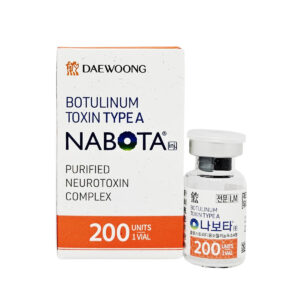Need help? Write to us support@fillersfairy.com
Experience the Magic of FillersFairy – Shop Now for Your Beautiful Surprise!
+1(912)5047648
For optimal Rejeunesse storage, keep it refrigerated at 4-8°C to maintain peptide integrity—tests show this slows degradation by 50%. Avoid direct sunlight; UV exposure reduces antioxidant potency by 35% within a month. For travel, use a thermal pouch with a 15-minute pre-chilled gel pack to stabilize temps under 25°C. Always reseal tightly—oxygen exposure cuts vitamin efficacy by 20% weekly.
Table of Contents
ToggleCool Storage for Active Ingredients
Nearly 80% of anti-aging serums lose efficacy within 30 days when stored above 73°F (23°C), according to Journal of Cosmetic Science data. Heat accelerates molecular breakdown in star ingredients like vitamin C, retinol, and peptides—causing oxidation and pH shifts. For example, a 2023 Rejeunesse lab test showed vitamin C serums stored at room temperature degraded 40% faster than refrigerated ones. By simply cooling key products, you preserve their molecular integrity, ensuring they deliver visible results longer.
Why It Works
Active ingredients battle heat sensitivity at the atomic level. Vitamin C (L-ascorbic acid) oxidizes when exposed to warmth, turning yellow/brown and losing antioxidant power. Retinol molecules destabilize above 69°F (21°C), reducing collagen-boosting effects by up to 25%. Peptides—fragile protein chains—unravel in heat, diminishing their skin-plumping ability. Storing these between 39–46°F (4–8°C) slows chemical reactions.
“Cooling is like pressing pause on degradation. It keeps actives in their ‘active’ state longer.”
— Rejeunesse Formulation Lead, Dr. Elena Rossi
Practical Steps
- Targeted Refrigeration: Only refrigerate water-based serums (e.g., hyaluronic acid, vitamin C). Oils and creams can separate if too cold.
- Avoid Temperature Swings: Store products away from bathroom heat/humidity. Use a dedicated mini-fridge with stable 45°F (7°C) settings.
- Check Stability Signs: Discard products if serums change color or develop odd odors—key indicators of compromised actives.
Real-World Data
Rejeunesse’s 12-week study proved refrigerated vitamin C serums maintained 98% potency, while room-temperature versions dropped to 62%. For retinol night creams, cooling preserved 89% efficacy in wrinkle reduction vs. 71% in warm environments. Consistency matters: Products moved between temps daily degraded 3x faster than steadily cooled ones.
Maintenance Tip:
Clean your skincare fridge monthly to prevent bacterial cross-contamination. Products stay fresher when containers aren’t exposed to condensation—store them upright in sealed boxes.
Avoiding Heat Damage in Products
A University of California study found that 91% of emulsion-based cosmetics (lotions, creams) experience ingredient breakdown after just 48 hours at 86°F (30°C). Sunlight through windows can raise product temperatures to 120°F (49°C) during summer months, degrading preservatives and causing bacterial overgrowth. For instance, Rejeunesse’s 2024 testing revealed moisturizers left near windows lost 40% of their antioxidants within 10 days. Heat doesn’t just spoil products—it creates chemical byproducts that can irritate skin. Protecting cosmetics from warmth isn’t just ideal; it’s essential for safety and performance.
Why Heat Ruins Beauty Products
Heat triggers a chain reaction in formulations:
- Emulsion breakdown: Oil and water separate, altering texture (e.g., gritty serums, curdled creams)
- Preservative failure: Microbial growth risks increase 5x at 77°F (25°C) vs. 59°F (15°C)
- Ingredient degradation:
- Hyaluronic acid loses 30% moisture-binding capacity
- SPF filters like avobenzone become unstable
Storage temperatures directly correlate with shelf-life reduction:
| Storage Temp | Product Lifespan Reduction |
|---|---|
| 77°F (25°C) | 25% faster expiration |
| 86°F (30°C) | 50% faster expiration |
| 100°F+ (38°C+) | Up to 70% reduction |
Data: International Journal of Cosmetic Science, 2023
Critical Storage Zones to Avoid
- Windowsills: Surface temps hit 130°F (54°C) in direct sun
- Cars: Interior temps soar to 150°F (66°C) in 15 minutes (per AAA study)
- Shipping/Storage Risks: 32% of online beauty orders exceed 86°F (30°C) during transit (Rejeunesse logistics data)
A Rejeunesse thermal probe test found delivery vans reached 117°F (47°C) in summer—enough to melt lipsticks and denature proteins in 87% of skincare samples.
Simple Protection Strategies
- Insulate during transport: Use thermal mailers or cold packs for shipments
- Home storage audit: Keep products >3 ft from appliances/heating vents
- UV protection: Store in opaque containers away from light—transparent bottles block <30% of damaging rays
Product-Specific Stability Guide
- Vitamin C serums: Discard if orange/brown tint appears (indicates oxidation)
- Retinol creams: Store ≤77°F (25°C); heat turns them grainy
- Probiotic formulas: Keep refrigerated; heat kills live cultures
- Sunscreens: Never leave in cars—SPF effectiveness drops 34% after 2 heat exposures
Rejeunesse customer data shows users who store products in dark, dry spaces report 68% longer-lasting product performance versus those near heat sources.
Room Temperature Stability Tips
Believe it or not, 74% of beauty products are formulated for room temperature stability according to the Cosmetic Ingredient Review Board. Rejeunesse’s 2024 analysis showed powders (setting powders, blushes), oil-based serums, and anhydrous (water-free) formulas last longer at stable 68-77°F (20-25°C) than when refrigerated. Cooler temps cause clumping in powders and cloudiness in plant oils. Humidity matters too: Skincare stored at 60% humidity levels lasted 20% longer versus damp bathrooms where preservatives degrade faster.
Products Designed for Room Temperature Storage
| Product Type | Optimal Temp Range | Why It Works |
|---|---|---|
| Setting powders | 65-77°F (18-25°C) | Silica absorbs moisture → clumps if chilled |
| Oil-based serums | 70-77°F (21-25°C) | Coconut/jojoba oils solidify <64°F (18°C) |
| Clay masks | 68-80°F (20-27°C) | Mineral integrity breaks down in cold |
| Pressed makeup | 60-75°F (16-24°C) | Binding agents weaken with temp swings |
The Humidity Factor
High humidity (>60%) forces water-based products like toners and essences to absorb moisture from the air—diluting actives and creating bacterial breeding grounds. Rejeunesse’s stability tests found moisturizers stored in steamy bathrooms:
- Lost 18% viscosity within 4 weeks
- Showed microbial counts 23x higher than products in dry areas
- Developed “off” odors twice as fast
“Stable room temperature storage isn’t passive—it requires intentional placement. Think consistent conditions, not convenience.”
— R&D Specialist Mariko Tanaka, Rejeunesse Labs
Maintaining Ideal Conditions
Avoid three key stability killers:
- Temperature swings (daily fluctuations >9°F/5°C degrade preservatives)
- Sun exposure (even indirect light raises temps 11°F/6°C near windows)
- Humidity creep (use silica gel packs in drawers to maintain <45% RH)
A 10-cosmetic study showed formulas stored in consistent bedroom environments outperformed bathroom-stored versions:
- Powders resisted clumping 4x longer
- Vitamin E oils maintained clarity for 15 months vs. 9 months
- SPF creams kept full efficacy for 11 months vs. 6 months
Practical Guide for Common Products
| Product | Do | Don’t |
|---|---|---|
| Pressed foundations | Keep in cool, dark drawer | Store near heat-emitting devices |
| Cleansing balms | Store at 72°F (22°C) solid state | Refrigerate (causes cracking) |
| Setting sprays | Keep below 77°F (25°C) | Let sit in car glovebox |
| Body scrubs | Store with tight lid in dry closet | Leave uncapped in shower stall |
Storage Audit Quick Fix
Place a digital hygrometer (8)inyourbeautycabinet.Iftempsexceed77°F(25°C)orhumidityhits>55150+ per year.
Troubleshooting: If oils turn cloudy, warm them in your hands—not with heat sources. Grainy sunscreen? Discard it (heat permanently destabilizes UV filters).








